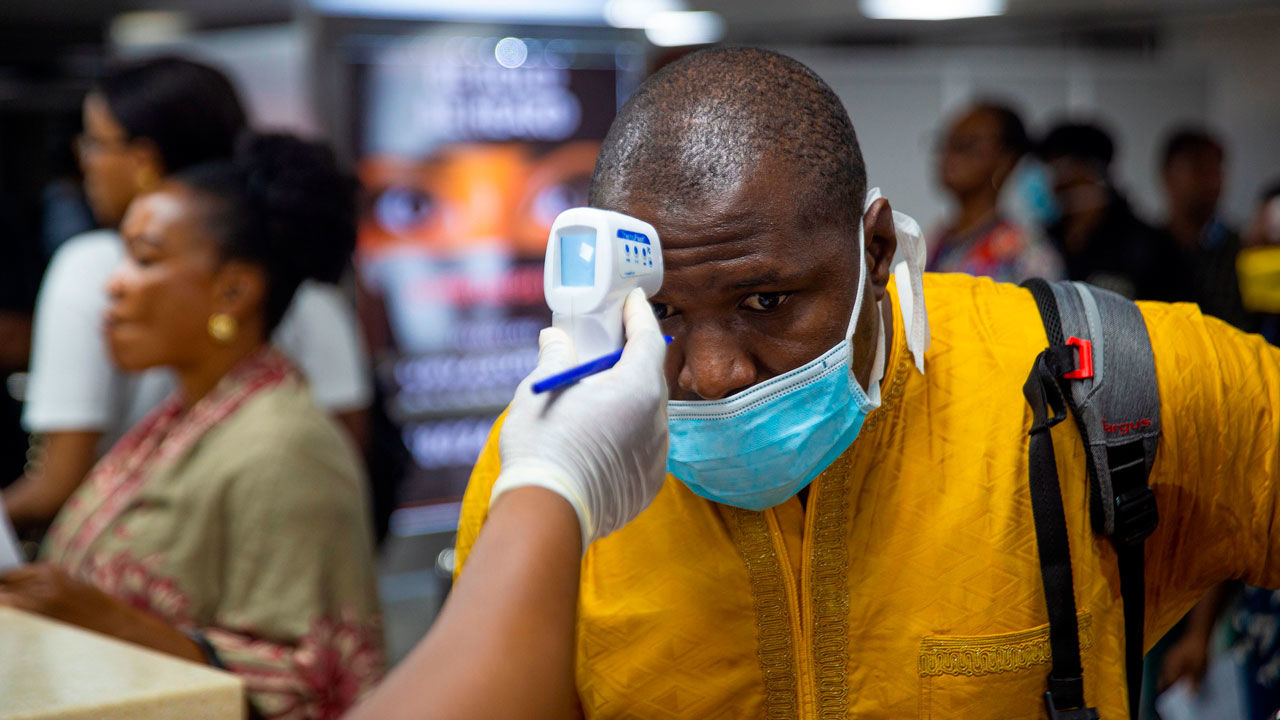Covid-19: 10 Innovations Developed By Africans To Combat Coronavirus

Africa confirmed its first case of the COVID-19 on 14 February 2020. Completely caught unprepared, the virus spread across the continent like wild bushfire. It hit heavily on industries, health sectors, education, and the entirety of human activities. Consequently, social distancing and the use of face masks became the new norm.
One thing was clear, it’s a fight for all and not just the government. To combat the spread of the COVID-19 pandemic, Africans began to innovate. Apparently, it has become a fierce contest. Individuals and companies are manufacturing gadgets and gears to stop the spread of the virus. So far, coronavirus has infected over 7.6 million across the globe. over 3.8 million people have recovered will there are over 400,000 fatalities. Below are innovations by Africans to fight the pandemic
1. Ventilators

Covid-19 is a respiratory virus that attacks the lungs upon exposure. Consequently, breathing becomes difficult for that person. Hence, there’s a need to support such a person with a ventilator. However, due to the rapid spread of the virus, the number of patients outnumbered the available ventilators in hospitals leading to a severe shortage. African innovators such as Innoson Vehicle Manufacturing company and EPCM Holdings took up the challenge to make more ventilators. This device can make the difference between living and dying among COVID-19 patients.
2. Semi-automated hand washing machine

A semi-automated hand washing machine was developed by some Nigeria Youth Corp Members to combat the COVID-19 outbreak in Africa. The hand washing machine has a soap dispenser, and a leg trigger integrated with it. So the semi-automated hand washing machine is contact-less. When inaugurating the machine, the inventors mentioned that the handwashing machine is contactless to avoid spreading the virus with it
3. 3D printing of medical gears

In response to the scarcity of medical equipment across Africa, Africans like Natalie Raphil of Robots Can Think began using 3D printers to make medical gears. The aim of these 3D-printed gears is not to replace the industrial gears. This is because 3D printing takes time and only a few products are possible within a short time. However, they supplement the industrial equipment. Medical gears that can be 3D-printed include respiratory face masks, orthopedic, surgical instruments, and external prosthetics.
4. Real-time COVID-19 tracker
Since the outbreak of the pandemic, people have been scampering for credible information. However, this led to the rise in misinformation and panic. To contain misinformation in Africa, Darlington Ahiale Akogo of GUDRA is currently working on a real-time COVID-19 case tracker. This tracker will provide real-time information on the spread of the virus across Africa. This will be the first of its kind on the continent.
5. Lung x-ray scanner

Some innovators in Tunisia are making efforts to assist the health workers in identifying the spread of the virus. Consequently, they developed a lung x-ray scanner. The x-ray scanner integrates with Artificial intelligence that can identify viruses in the human system. The x-ray works by placing an x-ray copy of the patient on its AI surface. This could be a game-changer in the fight against COVID-19 if approved by the Tunisia government. However, its approval is subject to successful testing which is ongoing in the country.
6. T-sense
T-sense is an innovative device created by a team of Africans namely Eric Kirima, Daniel G, and Lewis W. The device convert sounds picked from the lungs and heart into an image that can be studied by health workers to determine the status of a patient. The device uses acoustics and deep learning to create a pulmonary image.
7. Mobile testing boot

Most Africa countries do not have adequate testing kits. The shortage of testing kits has put the lives of frontline health workers at great risk. In response to the shortage of testing kits, Dr. Ola Brown of Flying Doctors Investment Groups developed a mobile tech solution called mobile testing boot. Hence, doctors can treat as many patients as possible without having physical contact with them. This mobile testing boot has helped greatly in keeping frontline health workers safe while they try to save others.
8. Self-assessment App

Among the top innovative ideas develop by Africans is an e-assessment app build by an African owned company, Kreateng. The application provides Covid-19 self-assessment results based on users’ health status, travel histories, place of residence, and job records. With over 400,000 users, the self-assessment application has helped health workers to suggest and prioritize treatment to Africans with high-risk of contracting the virus.
9. Market Garden App

Market Garden is an online marketplace developed by the Institution of Transformation in Uganda to connect sellers and buyers from their respective houses. As a result, sellers receive payment for selling on the platform while buyers pay for buying on the platform. Products bought from sellers will then be moved to buyers via taxi or motorcycle. So the trade process limits contact between the parties involved. Currently, social distancing is the best tool to fight the virus. The market garden app is helping to obey the stay at home and social distancing orders.
10. Homemade Nose Masks

The new coronavirus gains entry into an individual through the mouth, nose, or eyes. Therefore, the WHO is encouraging people to use nose masks in public places. Even before this announcement, there was a severe shortage of nose masks in Africa. Also, high demand pushed up the price of the available ones. Therefore, average Africans couldn’t purchase it. To solve this issue, Africans are now making nose masks using local fabrics. The outcome is a trendy product that is gradually becoming a fashion.
One thing that COVID-19 has revealed is that Africa can sustain itself. Apparently, lack of motivation and political will is keeping Africa from reaching its full potential. However, we hope that the lessons from coronavirus pandemic will be sustained even when the pandemic is over.







Responses